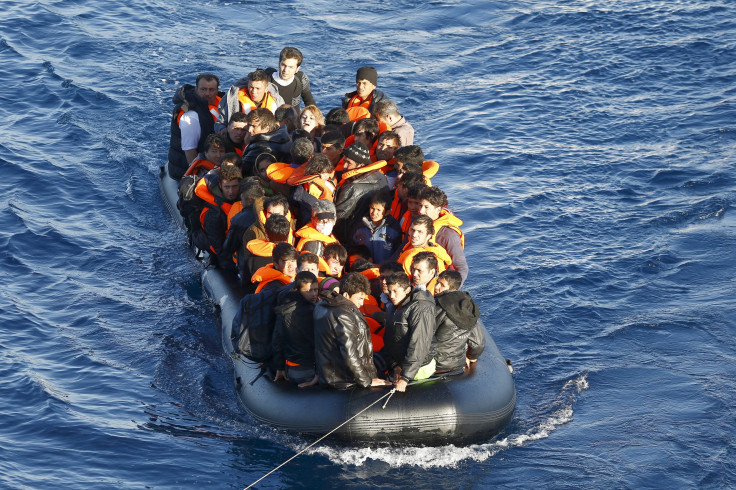Europe Refugee Crisis: Migrant Numbers Returned To Turkey From Greece Fall Short Of EU Expectations

The number of migrants and refugees returning to Turkey from Greece as part of a recent deal between the European Union and Turkey has fallen short of the EU's expectations, raising concerns that a fresh wave of arrivals could overburden the Aegean Islands this summer. The European Commission is set to present its third report Monday on efforts to deal with the influx of migrants and refugees.
Fewer than 400 of the 8,500 people who arrived on the Greek islands since the controversial EU-Turkey deal was signed have been returned to Turkey, the Financial Times reported, citing figures from the Greek government’s migration co-ordination unit. Under the deal, Ankara is to take back all migrants and refugees who cross the Aegean to enter Greece illegally, including Syrians. In return, the EU will take in thousands of Syrian refugees directly from Turkey and also provide money, visa-free travel and fast-track Turkey's progress toward EU membership. The deal caps the resettlement and return at 72,000 refugees, according to the EU's existing commitments.
Amid growing concerns over the EU-Turkey deal, Athens approved more than 30 percent of the 600 asylum applications from Syrians that have been assessed since March 20 — when the arrangement went into effect. According to European officials and aid workers, the percentage is significantly higher than expected.
The Financial Times reported that the slow flow of returns could anger many in Germany, which has taken in a vast majority of the more than 1 million people who sought asylum in Europe in 2015. Greek officials believe that this reflects their own policy on asylum requests. Authorities have also dismissed fears that the EU-Turkey deal could collapse if the flow of refugees back to Turkey does not pick up pace.
Greek officials have warned that this could lead to a fresh influx and also stressed that Greece’s migration laws do not recognize Turkey as a safe third country for refugees.
“We fully understand the [EU] concerns but if you look at it from the perspective of the rule of law, it is going exactly as it should,” Maria Stavropoulou, a former U.N. official who heads the Greek asylum service, reportedly said. “We have many vulnerable people on the islands … a lot of very sick people. By law they are exempt from the return process.”
The EU-Turkey deal aims to discourage migrants from perilous crossings, often in small rickety boats, and to stop human smugglers who have fueled Europe's biggest influx since World War II.
Epaminondas Farmakis of Solidarity Now, a refugee charity funded by the billionaire investor George Soros, said: “Brussels wants to see group returns but Greece is looking at applications for asylum on a case-by-case basis.”
EU officials expected that almost all the migrants and refugees arriving in Greece after March 20 would be returned within a few weeks, helping curb the refugee crisis by sending a strong message to would-be migrants. However, Greece’s failure to fully implement the deal on returns has further strained ties between the EU and Ankara over an aid payment and the controversial issue of Schengen visas to Turkish citizens.
Turkey and Germany have been in a standoff over Ankara's terrorism laws — a condition for visa-free travel for Turkish citizens to the Schengen area in exchange for taking back refugees who crossed the Aegean Sea to Greece.
© Copyright IBTimes 2024. All rights reserved.





















